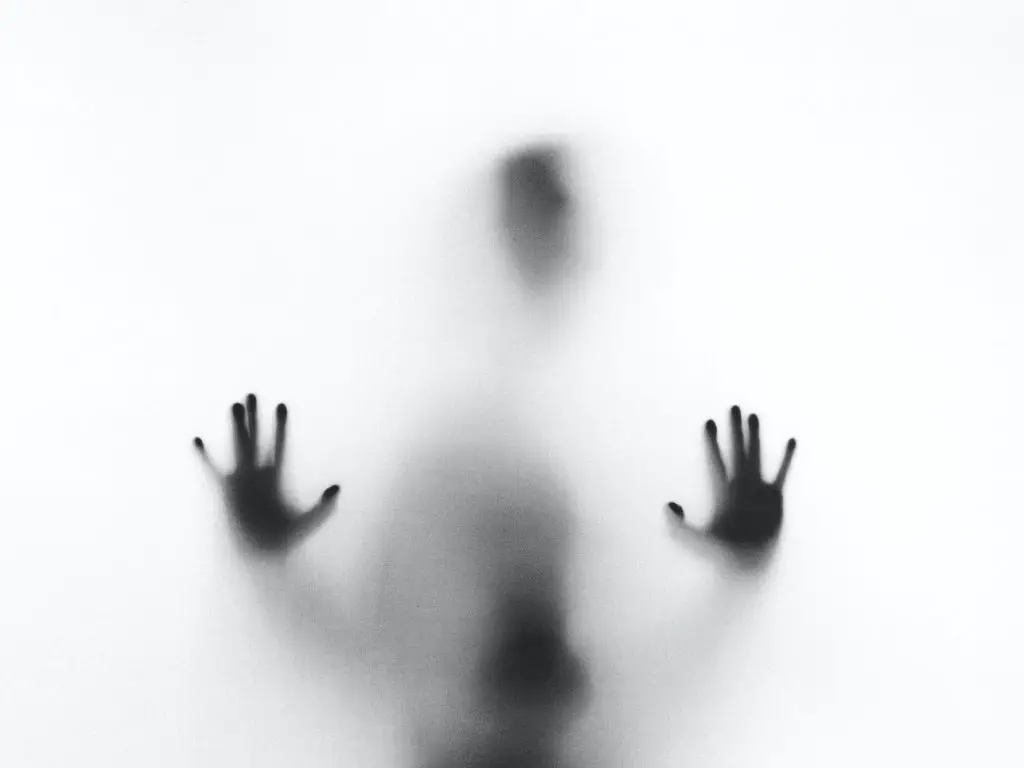Why Do Introverts Disappear? (5 Things You Should Know)
Oct 21, 2021

We’ve all been there.. One moment you are talking to your introverted friend and the next moment there’s complete radio silence for days on end.
The infamous introvert disappearing act! What happened?
You may wonder if your breath smells that bad. Most likely, that wasn’t the case (hopefully).
Introverts are people who prefer a calm, less stimulating environment.
They often feel drained after social interaction and need to recharge afterwards by being alone.
Introspection is a way for them to regain clarity.
Disappearing is how introverts enter that recharge state very quickly when necessary.
As an introvert myself, I must confess that I'm guilty of frequently going off radar for weeks on end.
But are introverts magicians for sport or are there possibly more serious things going on when the introvert seemingly vanishes from the face of the Earth?
Let’s take a look at 5 things you should know about why introverts tend to disappear.
5 Reasons Why Introverts Disappear
1. Introverts tend to disappear when they surrender to their need for solitude
Alright, before we look at all the other reasons why introverts tend to disappear, I need to get this off my chest.. Introverts ABSOLUTELY enjoy solitude!
For far too long our modern societies see this need of introverts to be alone as something unhealthy.
When you prefer to be alone, you are at the risk of being seen as shy, strange or that there’s just something wrong with you.
Because, why aren’t you socializing all the time like everyone else, huh? Well, the simple answer is that introverted people just love being by themselves!
One of the introverts in the introvert subreddit ever so eloquently described what he thought about disappearing for days on end: “Bliss.
Pure unadulterated bliss”. Truer words were never spoken!
Parts of our introverted daydreams may consist of vivid fantasies of us just disappearing from all phone, social media or face to face contact and retreating to our own space.
For example, retreating to our beloved introvert sanctuary at home, a remote lakeside cabin, or just traveling alone far away.
We just need to indulge in our recurring hermit mode to explore the birthplace of creativity, rest in the soothing silence, and enjoy total freedom!
No one to invasively contact us, no obnoxious pending messages or pressuring social obligations on the calendar.
Just pure internal and external freedom! Not to worry, introverts reappear eventually from the eternal fields of stillness.
And when we do, we are fresh, new and reborn again!
Photo by Alexandr Podvalny on Pexels
2. Introverts tend to disappear when they’re having an existential crisis
Now it’s clear that an introvert’s tendency to isolate isn’t necessarily emerging from an unhealthy place.
An introvert’s disappearance is in most cases very sudden, and can come off as imprudent.
Despite, that introverts enjoy solitude, in many cases it could actually mean there’s a real emotional emergency.
When confronted with an existential crisis, introverts most likely need to retreat immediately to have time and space to go inward and face the emotional and sometimes spiritual distress.
What could be an existential crisis that would require such drastic measures you say?
Being fired from the job. Having the realization that one was living a lie in relationships, or professional career, or life in general.
Discovering some unhealthy unconscious behavior and belief patterns that are painful to see.
Each of those could overwhelm the introvert enough for them to need to launch the emotion ejection seat immediately from wherever they are and fly back to introvert headquarters (their introvert sanctuary).
They must attempt to resolve the existential crisis as soon as possible for their own peace of mind.
Any more sensory or emotional stimulation via family, friends or people in general interacting with them could be very much overwhelming.
So introverts tend to disappear in the midst of an existential crisis to utilize their introspective prowess to figure it all out and forge a new path in life.
3. Introverts tend to disappear when they’re depressed
Closely tied to an ongoing existential crisis are depressive symptoms.
Obviously, retreating or “disappearing” from social relationships and daily obligations is one of the infamous symptoms of depression in general.
So most personality types would probably retreat from the world when dealing with depression.
That being said, introverts do seem to have a proclivity towards internalizing their problems, because their focus is mostly on their inner world (introspection).
Internalizing problems means that we see or blame ourselves as the source of our personal problems.
Despite the fact that the existence of a direct link between introversion and depression is in reality far more complicated.
The tendency to manifest internalizing behaviors and problems are typically associated with depression (especially in children).
So, when you find that you (as an introvert) or one of your introverted friends goes off the grid too frequently or for worrisome lengths of time, it might be a sign that there’s something more serious going on.
Especially, when the long bouts of isolation are accompanied by other depression symptoms like prolonged feelings of sadness, apathy and hopelessness.

Photo by Maksim Goncharenok on Pexels
Get help for depression. Click here to book an Online Therapy session and get a special 20% discount the first month!
The introvert’s martyrdom
Like was said before, introverts have a tendency to see themselves as the cause of whatever personal problem they might be facing.
In a way this signifies responsibility and the willingness to take control.
Because, when you see yourself as the cause of a problem, you simultaneously are the solution.
Sadly, the downside of all this is the notion of feeling responsible for everything that happens to you, even in cases when you are clearly not the source of the problem.
This martyrdom introverts frequently sentence themselves to, could actually be a source of the depression in the first place!
In addition, we might believe that we should face all our problems alone which in some cases is just impossible.
Trying to face everything alone in the world is inevitably exhausting and demoralizing.
Are you experiencing depression symptoms? Please know that you’re not alone and it’s okay to ask for help.
Please visit healthline.com to learn everything you need to know about symptoms of depression, causes and possible treatments.
If you’re looking for a professional online therapist to help you with your depression, consider booking an online therapy session via online-therapy.com of which I’m an affiliate and get a 20% discount on the first month!
Take good care of yourself!
4. Introverts tend to disappear when they’re overwhelmed
Introverts prefer a calm environment, because stimulating surroundings can easily leave them feeling drained.
Preventing overwhelm is an introvert’s daily struggle (read my article Why Do Introverts Ignore You? (9 Shocking Truths) to get some more insight in some of the ways introverts avoid becoming overwhelmed).
When they’ve reached their maximum amount of stimulation for the day, they tend to disappear from all social interactions and retreat into their introvert sanctuary to recharge from being overwhelmed.
How long could that recharge state last?
Well, it depends on how severe the stimulation and stress were in the introvert’s life.
If their work week was particularly stressful they might disappear for the whole weekend!
That might mean that there's minimal or no contact with people in person, digitally or any other way (nope, not even the old fashioned handwritten letter!).
It may come off as abrupt and rude at times when introverts perform this disappearing act, but keep in mind that it is often of crucial importance to maintain physical and mental health.
In these increasingly stimulating and demanding societies we all live, you’ll need to actively create your own stillness.
If introverts don’t go into their infamous hermit mode frequently enough, they risk developing what’s called introvert burnout.
Now, if you had to choose between disappearing every so often or burning out, which one would you pick?
5. Introverts tend to disappear when they’re caught up in their interests
In many cases introverts disappear for a while, because they are caught up in some of their interests.
This could be a lifelong passion of theirs.
It could be anything really, but often it is some creative activity, or newfound concept they just can’t refrain from immersing themselves in.
Like I’ve mentioned in my article 5 Reasons Why INFJs Like To Be Alone, INFJs (who are of course introverted) enjoy entertaining themselves.
During those episodes they just completely lose track of time and their surroundings.
They may have fallen into a Youtube wormhole on any given topic.
Or eagerly started to read a new book on a Friday, just to come out of their binge on Monday.
What 3 days have passed? Astronomers say that time travel may be possible in the external infinite Universe.
Well, time travel is also possible in our internal Universe where it’s easy to disappear in that interesting infinity forever!
Conclusion
In this article we’ve explored the renowned disappearing act of the introvert from up close.
There might be many reasons why introverts all of a sudden seemingly vanish from the face of the planet.
Even-though introverts thrive in solitude and stillness, signs of self-isolation aren’t always healthy.
There might be underlying mental health problems causing the self-isolation.
What do you think of the introvert’s disappearing act? Does it make sense?
Can you think of more reasons why introverted people may choose to disappear?

INFJ Male
As a psychologist with a Master's degree in Clinical & Health Psychology, and as an INFJ male, highly sensitive human being, the author aims to blend the objective, subjective, mind, body and spirit for a holistic view on true well-being
for INFJs, Introverts, Highly Sensitive People and Empaths!
ALSO ON INFJ MALE PSYCHOLOGY


